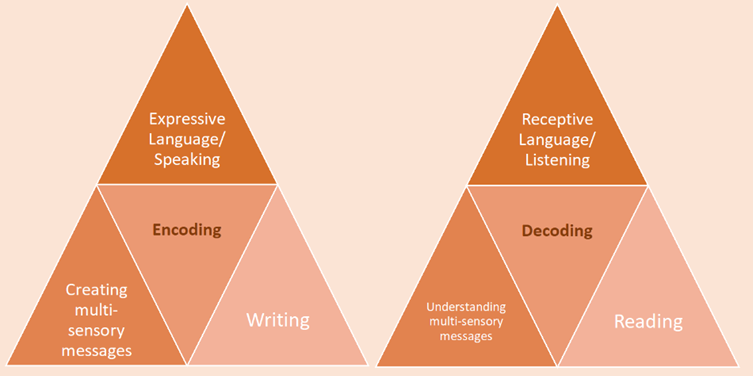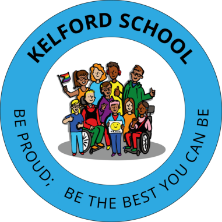Communication, Language and Literacy
This faculty incorporates Reading, Writing, Speaking and listening alongside “communication and interaction” as an area of need and a cornerstone of our curriculum.
Intent: - As a school, we pay high regard to the curriculum offer that we provide to our young people around communication, language and literacy. The faculty sets out the knowledge and skills that pupils will gain at each stage of their development. Progression grids for the differentiated pathways ensure that they align with the most recent research and the DfE and Ofsted standards.
To ensure that the communication, language and literacy curriculum meets the bespoke needs of our young people, it is imperative that a multi-agency approach is adopted and that individual learning plans are integrated and monitored as part of the quality assurance cycle.
The quality of education that the faculty provides is one that is embedded on a daily basis through school and is enhanced by enrichment opportunities, through cultural capital, British values and self-representation and diversity.
The faculty is inclusive of an SSP scheme that is sequenced and ambitious for our young people, one that is well resourced, taught daily and offers an ongoing training package for all staff. Alongside this, is the other areas of reading: reading symbols and vocabulary and fluency and comprehension. The same research approach has been taken for writing, which includes: motor skills and transcription, sentence composition and vocabulary. There is also a speaking and listening grid, once again extensively researched and one that aligns with the other areas in the Communication, Language and Literacy faculty.
All learning pathways are bespoke, sequentially planned and offer baselining and a progressive grid of objectives to inform next steps for each individual learning pathway and individual learning plan. The thematic cycle is researched, designed, planned and sequenced at all levels to enable children to learn more to know more and that this is filtered down into the faculty.
It is imperative that communication and a PBS approach forms the foundations our curriculum design and offer to ensure that our young people can have the best start in their life journey.
Implementation:

Communication
We enable communication by facilitating the ability to construct meaning through building the frameworks of knowledge. As Berninger et al. 2002 stated, ‘this will be through handwritten text and speaking. For others, this may be through both high and low-tech AAC technologies or Makaton and PECS..
Reading
Skills for decoding: All children and young adults who are accessing learning at the level inline with our English Developmental Framework Phonics and Morphology K-Level 4 onwards, are offered daily teaching of the Read Write Inc SSP programme. We follow the ‘what to teach when’ document to ensure coverage, pitch and progression of the Read Write Inc teaching process.
Pre-phonics including early communication teaching: Children and young adults who are pre SSP level work on the engagement scales; expressive, receptive and listening and attention encompassing the early communication strategies, sensology, story massage and sensory stories to access these pre-literate objectives.
Reading comprehension: Through our spiral currciculum we encourage the teaching of knowledge as well as direct teaching of comprehension when children and young adults are developmental ready. We understand the importance of role play and creativity, conversation, empathy and relationships which help build schemas so that the more complex comprehension skills can be taught like inference, prediction and summarising .
Fluency: understanding is key not just the speed of reading. There are three main elements; accuracy, automaticity and prosody. We ensure that we model and allow time for lots of over learning to develop this skill.
Reading for pleasure: As a school we ignite our children and young adult’s curiosity and enthusiasm for reading. This the love of reading is threaded throughout the whole curriculum.
Literature within each classroom is offered in a bespoke way, that is ‘fit for purpose’ to promote respect for books.
To ensure that all our children and young adults have the best reading experience whilst at Kelford, each class has their own Kelford Star Six. This is a reading spine with the primary aim of broadening and enhancing the literary interests and experiences of our children and young adults.
Writing: consistent language skills and systems provide a starting point for writing. We use symbolic as well as written transcription , with writing opportunities that are linked to the wider curriculum. We teach instructional writing opportunities that link to the writing forms long term plans. The writing skills based around transcription, composition and vocabulary are then carefully planned and adapted to create the achievable small steps.
Impact: Children and young adults will learn the skills to communicate, decode and access visual images and print, alongside the opportunity to read for pleasure and motivation. Comprehension skills will support career and pathways beyond post 16. Children and young adults will develop writing skills (symbolic or written/typed) in the form of sentence composition, transcription and vocabulary, following their own bespoke learning pathway and bespoke learning need to eventually prepare them for their journey into adulthood.
